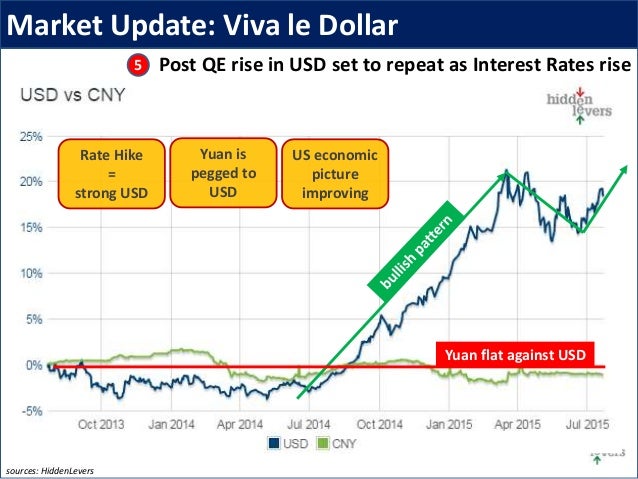Bobby Doll is the chief equity strategist of Nuveen Asset Management. Before that, he held the same job at Blackrock. I have followed his commentary for many years and always try to catch his interviews on CNBC. His gravitas is amazing, and I have never seen him smile. But, he never loses the long view, which is so critical during a crisis.
In his latest commentary, he sees the stock markets churning within a relatively narrow range, as it comes to grip with the geopolitical drama of Greece, Puerto Rico, and China. After that, he is bullish that all the positive fundamentals will eventually overwhelm the front page. He lists them as a strengthening U.S. economy, the improving outlook for jobs (with jobless claims now at the 1973 low), and modest interest rate increases. He points out that the Fed has raised rates in a series six times since 1983. On average, the S&P 500 has increased 14.4% by the 500 day point after the initial increase in interest rates. Importantly, he also points out the Q2 corporate earnings have been better than expected, about 5.8% better. So far, 74% of the companies have beat relatively low expectations.
He expects these great fundamentals will overwhelm the headline news at some point and drive the market higher. In other words, don't lose the long view. Things are not nearly as bad as the headlines!
In his latest commentary, he sees the stock markets churning within a relatively narrow range, as it comes to grip with the geopolitical drama of Greece, Puerto Rico, and China. After that, he is bullish that all the positive fundamentals will eventually overwhelm the front page. He lists them as a strengthening U.S. economy, the improving outlook for jobs (with jobless claims now at the 1973 low), and modest interest rate increases. He points out that the Fed has raised rates in a series six times since 1983. On average, the S&P 500 has increased 14.4% by the 500 day point after the initial increase in interest rates. Importantly, he also points out the Q2 corporate earnings have been better than expected, about 5.8% better. So far, 74% of the companies have beat relatively low expectations.
He expects these great fundamentals will overwhelm the headline news at some point and drive the market higher. In other words, don't lose the long view. Things are not nearly as bad as the headlines!

